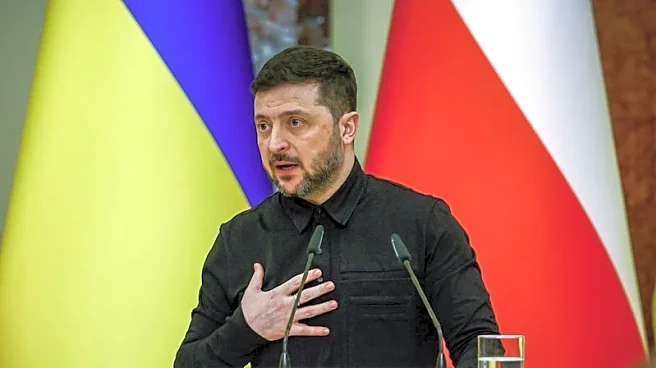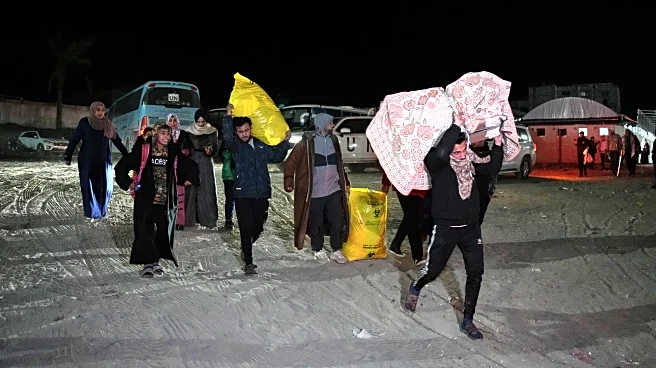What's Happening?
Rabin Medical Center-Beilinson Campus is focusing on the nutritional rehabilitation of 20 hostages recently freed from Hamas captivity. Prof. Noa Elikim Raz and Dr. Sigal Frishman are leading the initiative, emphasizing the importance of personalized
dietary plans for each individual. The approach is designed to address both physical and psychological needs, ensuring that the hostages receive food that is not only nutritionally adequate but also psychologically comforting. This personalized care is crucial for the hostages' recovery, as it helps them regain strength and improve their overall well-being after their ordeal.
Why It's Important?
The nutritional rehabilitation of freed hostages is a critical step in their recovery process. Proper nutrition can significantly impact their physical health, aiding in muscle mass recovery and weight stabilization. Additionally, the psychological aspect of choosing comforting foods can help in alleviating stress and trauma experienced during captivity. This approach underscores the importance of holistic care in medical rehabilitation, highlighting the role of nutrition in both physical and mental health recovery. The initiative by Rabin Medical Center sets a precedent for how medical institutions can address complex rehabilitation needs in similar situations.
What's Next?
The ongoing care for the hostages will likely involve continuous monitoring and adjustments to their dietary plans as they progress in their recovery. Rabin Medical Center may also collaborate with mental health professionals to ensure a comprehensive rehabilitation strategy. The success of this program could influence future protocols for handling similar cases, potentially leading to more integrated approaches in medical and psychological care for individuals recovering from traumatic experiences.
Beyond the Headlines
This development highlights the ethical responsibility of medical institutions to provide comprehensive care that addresses both physical and psychological needs. It also raises awareness about the importance of personalized healthcare, which can be crucial in recovery from trauma. The initiative may inspire other healthcare providers to adopt similar practices, promoting a more empathetic and effective approach to patient care.
















